Ad Reactions & the Customer Experience
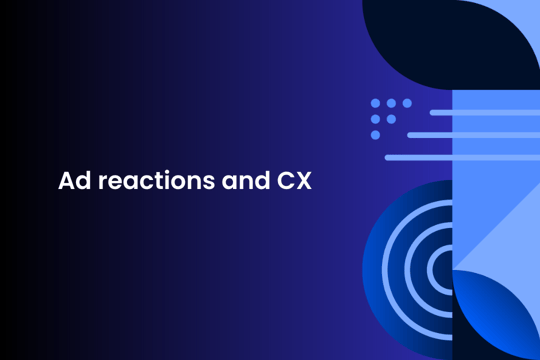
Understanding that 80% of people are interested in viewing ads that are relevant, the potential for advertising to generate positive reactions is clear. However, how is the advertising industry faring in its pursuit to generate positive reactions? How do people feel about and react to the most common types of advertising they see every day? Do ads enhance or detract from the user experience?
To answer these questions, we asked members of the DISQO Audience to share:
- Acceptability of advertising on social media
- Acceptability of advertising while browsing websites
- Impact of advertising on the user experience
- Sentiment when viewing ads
Ad Acceptability
Before delving into audience reactions to specific ad exposure situations, it’s important to first examine general acceptance of two common settings for ad exposure: social media feeds and general websites.
In fortunate news for advertisers, less than a third of individuals find advertising to be unacceptable on social media (30%) or elsewhere online (32%). Indeed, nearly half expressed that they are okay with viewing ads while browsing social media (48%) or other sites (47%). In both situations more people find advertising to be acceptable than not.
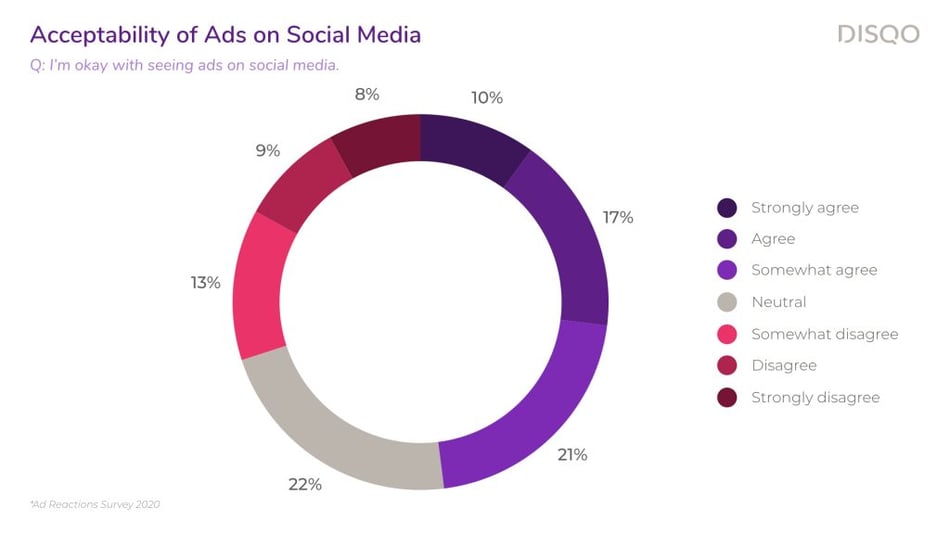
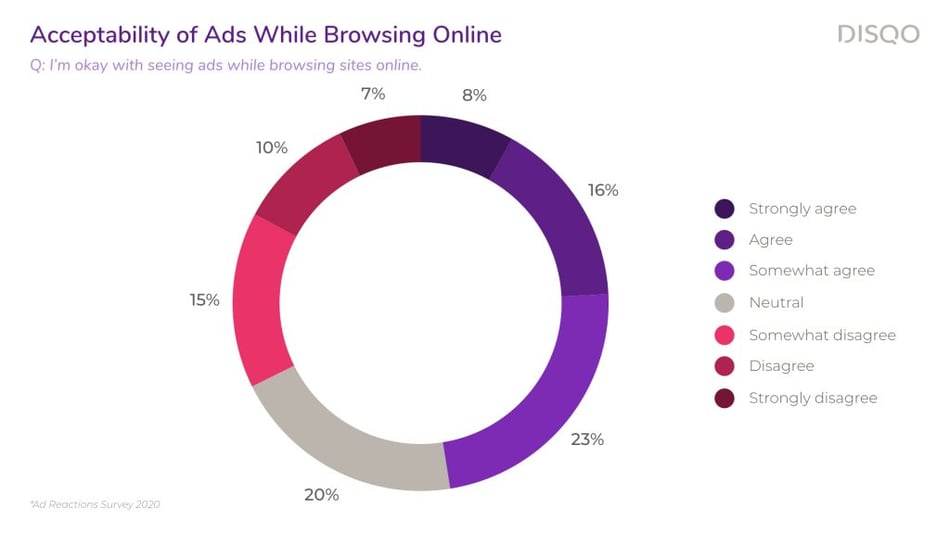
With the relative acceptability of advertising affirmed, it is fair to assess how advertising affects the user experience and how people react to ads in different settings.
Ads & the User Experience
Whether or not an ad is effective, advertisers and publishers alike should strive to provide a positive experience, lest their brands become associated with frustration. While reactions to specific ad exposures may vary wildly based on a myriad of circumstances, we sought to gauge overall sentiment as toT whether ads enhance or detract from the user experience.
When asked whether advertising has a positive impact on their experience, only 25% agreed, suggesting that there is considerable room for improvement.
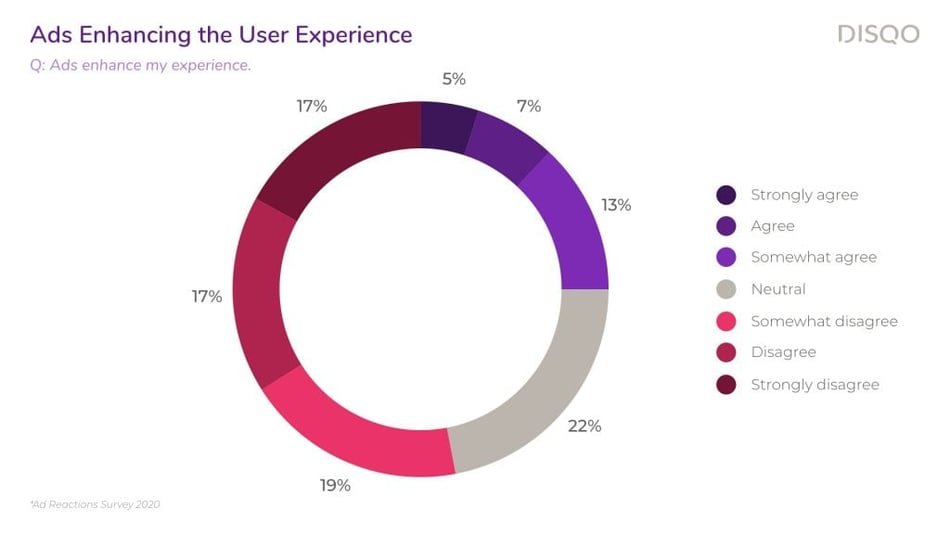
Similarly, when asked whether advertising has a negative impact on their experience, 63% agreed, and only 17% disagreed. The fact that a majority of people feel that advertising negatively affects their browsing experience should — and must — serve as a wake-up call for advertisers and publishers alike to improve the ad experience.
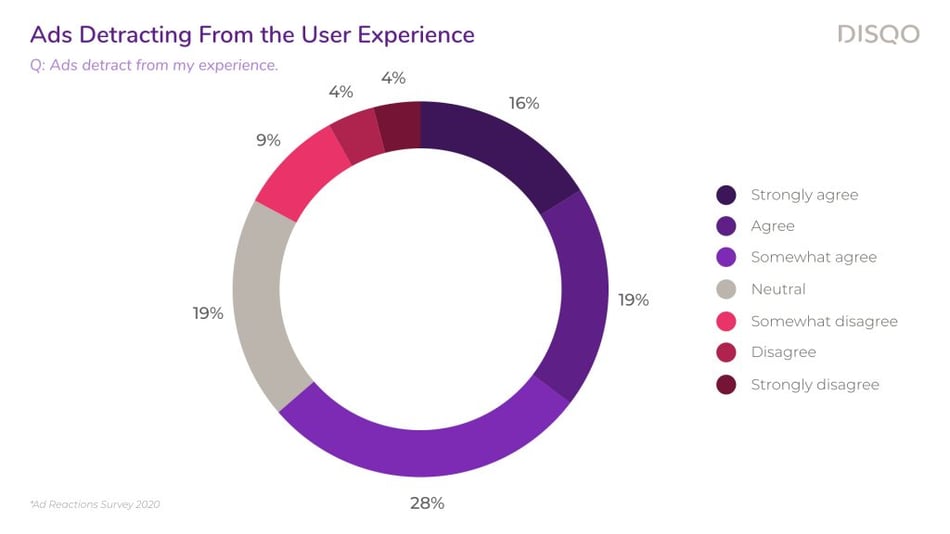
Regardless of wording, approximately one-fifth of people were ambivalent, expressing that advertising neither positively nor adversely affected their experience. While this figure is not as alarming, it does illuminate an opportunity for advertisers to more positively engage a considerable segment of the population.
Sentiment When Viewing Ads
Not only can ads vary based on the platform they’re viewed on, but they can also differ in their form. From text ads to visual ads, how do people feel when they come across different kinds of ads?
People are most likely to react positively to an ad when it is either a visual ad for a product they are shopping for (52%) or an ad in their social feed for a brand the viewer likes or uses (44%). In each of these cases, it is fair to construe that the advertising — as it pertains to products of use to the consumer and brands that the consumer is interested in — is thus perceived as relevant, which is in line with our previous study on how consumers perceive ad relevance.
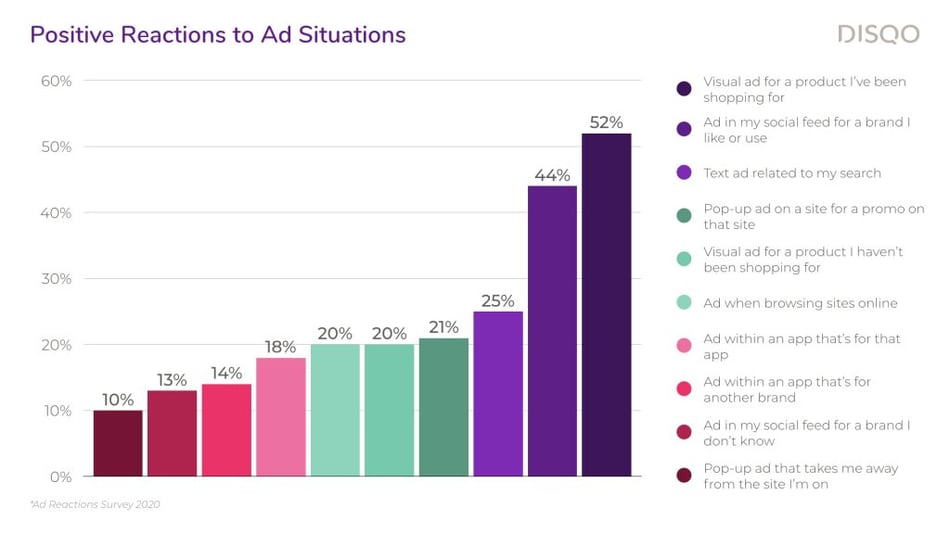
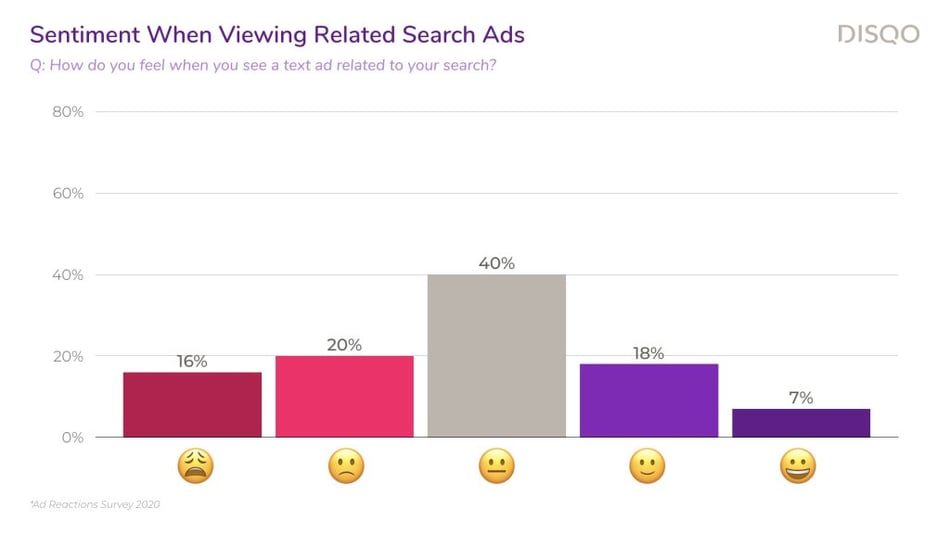
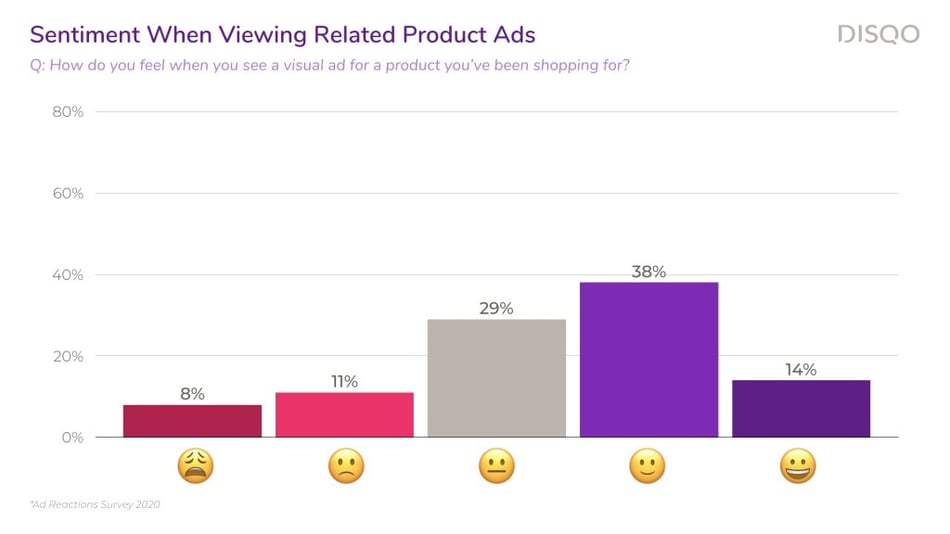
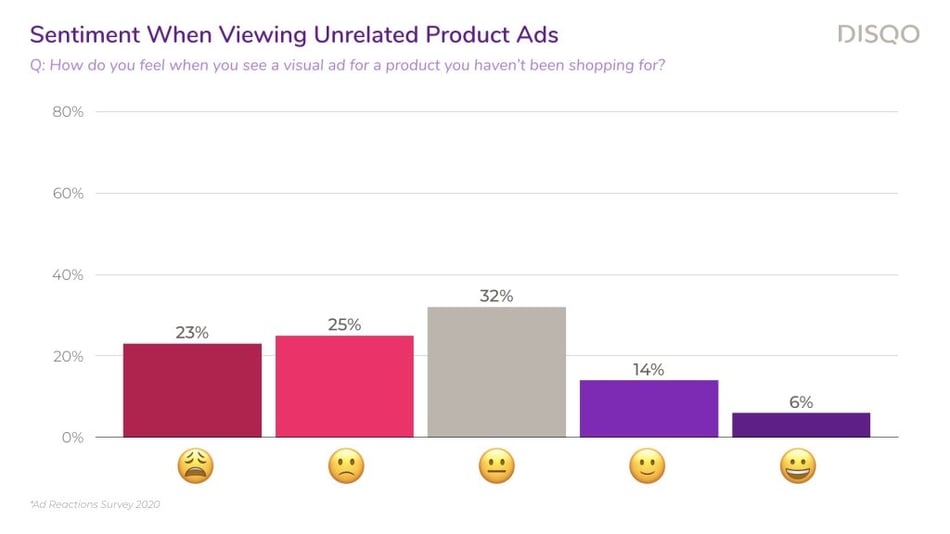
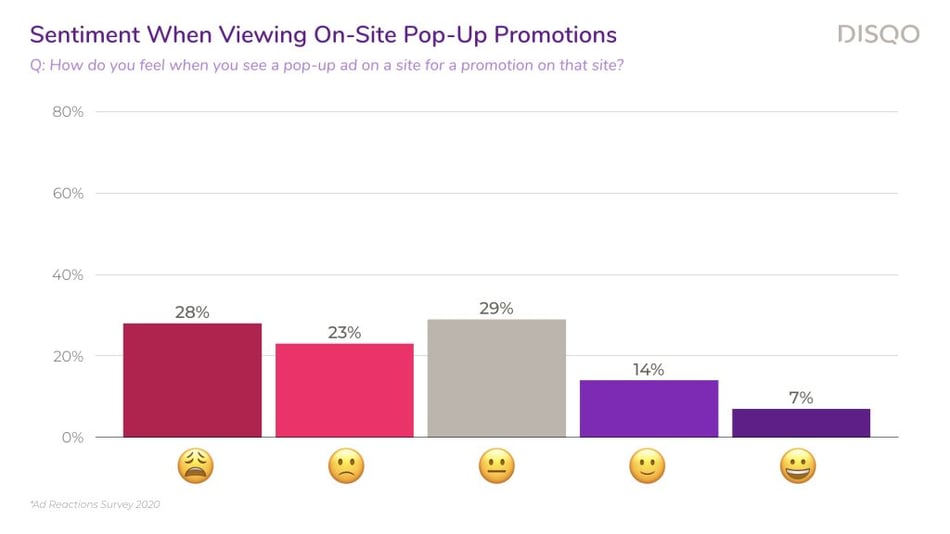
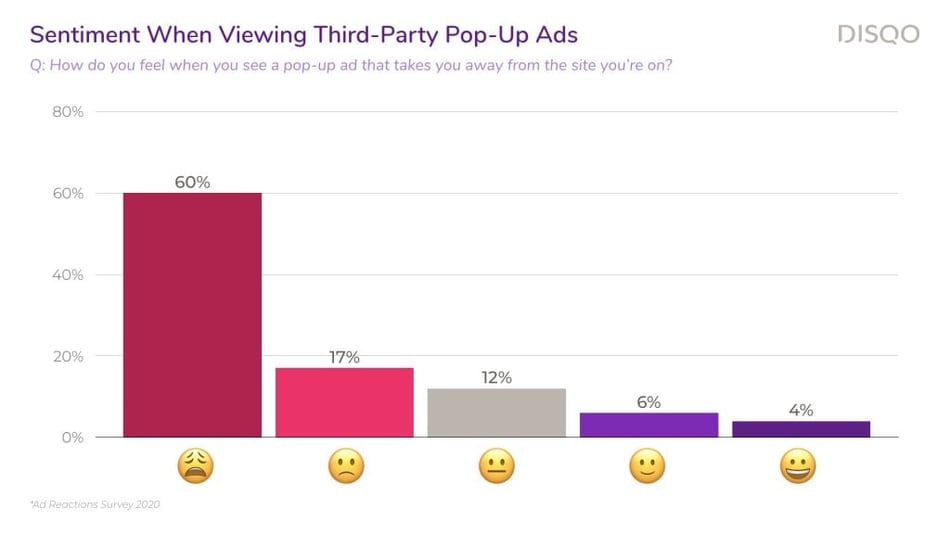
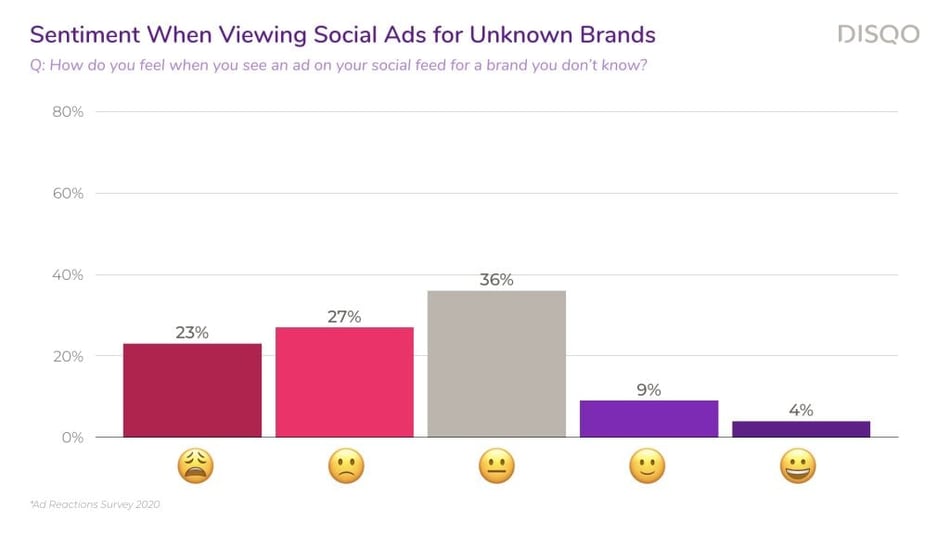
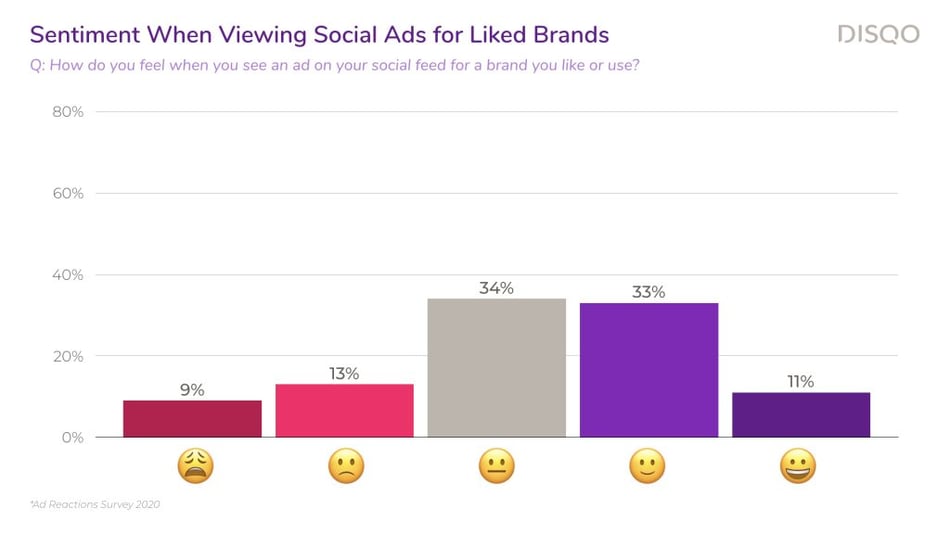
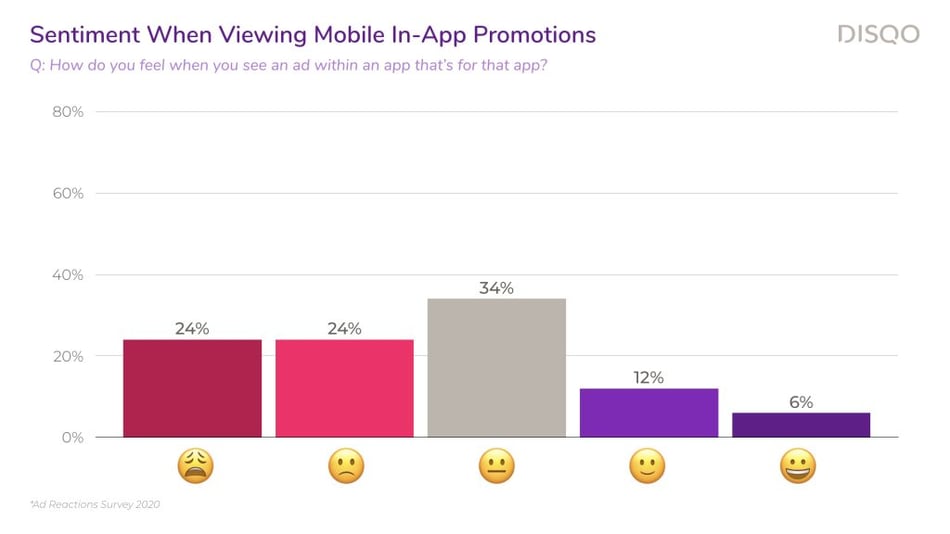
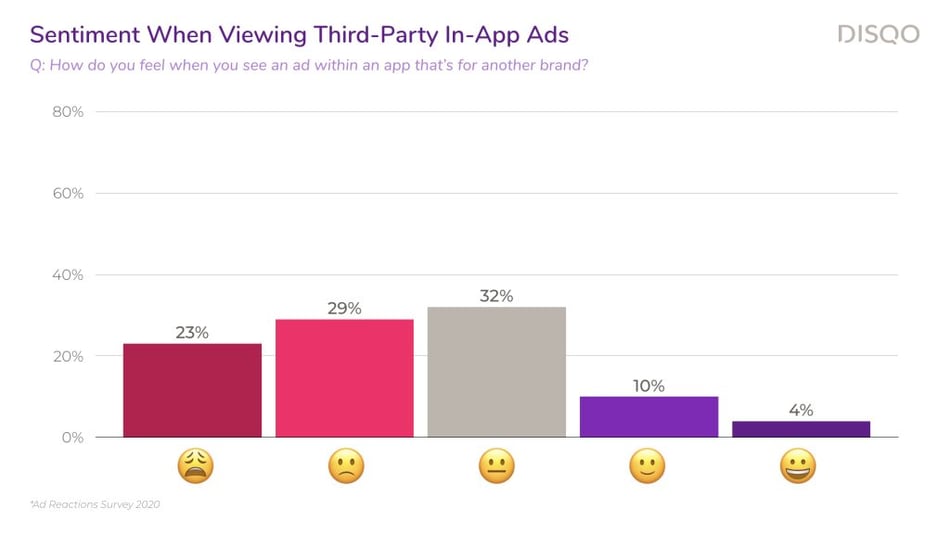
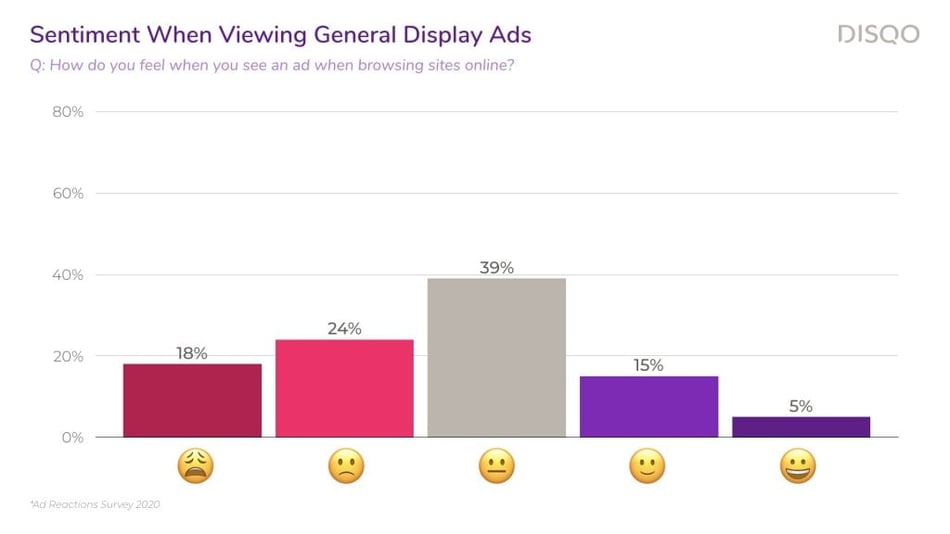
The most negative reactions come from pop-up ads that take users away from the site they’re on (10%), ads on social for a brand they don’t know (13%), and ads within an app that are for another brand (14%).
Putting it All Together
What does this mean for advertisers? Unsurprisingly, people react more positively when advertising is either related to their current browsing interests or pertains to a brand for which they already have a positive affinity.
While pop-up promotions on a given site or app may elicit a positive reaction when it provides a meaningful message — such as a discount — that is related to the current content the person is browsing, ads that are both interruptive in nature and disconnected in context are not advised.
About the Study
The Ad Reactions Survey was conducted in over a one week period, from December 26th 2019 through January 2nd, 2020. In total, 993 DISQO Audience members participated. The survey uncovered acceptability of advertising in various settings, the impact of advertising on the user experience, and how people react when exposed to particular types of ads.
Join the Conversation
How do you feel when you see an ad? Do you prefer to view ads on certain platforms? Join the conversation on LinkedIn or Facebook.
Get connected with DISQO’s platform

Subscribe now!
Get our new reports, case studies, podcasts, articles and events
